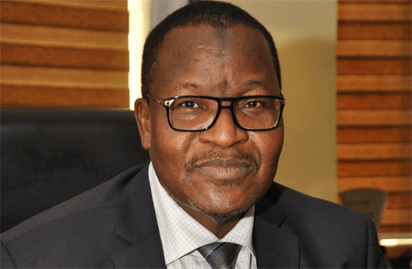
THE reappointment of Prof Umar Danbatta by President Muhammadu Buhari and his confirmation by the Senate as the Executive Vice-Chairman and CEO of the Nigerian Telecommunications Commission, NCC, are obvious seals of satisfaction over his first term and approval for him and his team to continue pushing the frontiers in the development of our telecoms sector and digital economy.
Prof. Danbatta first came to the NCC on August 4, 2015. The past five years have been a period in the world where digital communication has gone even more digital. Data took the centre-stage. Industry operators have struggled with worldwide trends to ensure we are not left too far behind.
It fell to the mandate of the NCC to skillfully shepherd the industry and tackle the challenges posed by high cost of Right of Way, RoW(which hampered network development), multiple taxation, health concerns relating to the siting of telecommunication towers near residential areas, improvising to cope with poor public electricity supply and others.
Prof. Danbatta’s eight-point agenda and five-year development plan helped in the renaming of the Ministry of Communications to accommodate the Digital Economy focus. The National Bureau of Statistics, NBS, affirms that the telecoms sector now accounts for 14.7 per cent of our GDP (Q1, 2020). Our telephone subscriber base rose from 151 million to 196.3 million (June 2020) with a teledensity of 102.88 per cent.
Danbatta’s team surpassed the 30 per cent broadband penetration target set for December 2020, shooting it from eight per cent in 2015 to 41.27 per cent in June 2020. Internet subscribers increased from 90 million to 143.7 million as of June 2020.
Apart from the increased empowerment of consumers, NCC has also boosted efforts to eradicate the pre-registered Subscriber Identification, SIM, card syndrome (which had greased the wheel of crime and urban terrorism) and efficiently governed the spectrum resources for greater service delivery.
Very importantly, the strategic engagement with the Governors’ Forum over RoW issues has helped service providers to ramp up infrastructural expansion.
However, we are not yet there. The journey to the future is still very distant. As of 2018, Nigeria ranked 122nd out of 159 countries in the global telecoms index of the International Telecommunications Union, ITU. This, and the new Digital Economy focus of the Buhari government, should spur Danbatta and his team to greater efforts. As the world grapples with the COVID-19 dispensation and the looming 5G challenge, Nigerians must be properly guided.
We must flow in tandem with a world order where data is everything. We are confident that Danbatta’s NCC will put Nigeria in an enviable position in world telecoms with greater indigenous visibility. Industry players must be afforded a better operating environment and more emphasis should be on satisfactory service delivery to the people.
END

Be the first to comment